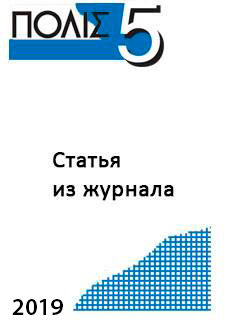Online shop of "Polis. Political Studies" Journal
We in the world, the world in us
Klemeshev A.P., Ilyin M.V. Lost in Translation. Being the Problem. – Polis. Political Studies. 2019. No 5. P. 148-166 (In Russ.)
Free!
institutions, processes, langue, parole, online, offline, agency, translation, interpretation, one-to-one correspondence, variability of terms, sense, reference.
The article highlights challenges and responses to communication failures in politics and political science. In this context, the word translation refers to an adequate understanding of each other and oneself in political interactions. By its very nature, it is partial and relative. This ambiguity results from unsocial sociability (ungesellige Geselligkeit) as outlined by Kant, and corresponds to the principle of incompleteness of phenomena that triggers evolution (Deacon). Still, people at large associate many typical dysfunctions and losses in translation with ill will or technical errors rather than fundamental relativity of human communication. They readily endorse the illusion of one-to-one correspondence of phenomena, terms, their sense and reference. The authors examine the nature and parameters of translation and transfer providing examples like Parson’s translation of Weber’s stahlhartes Gehäuse as iron cage, as well as the interpretation of revolution, Europe and Eurasia, governance, polity, politics, policy, and police. Translation and interpretation expounds within fluid interfaces which embroil online political and communicative processes on the one hand and offline institutional and sign systems on the other. The ensuing relativity of translation, interpretation and transfer techniques allows the issue of variability and equivalence of terms and other tools of our communication and understanding to be reconsidered. Finally, the article outlines the format of the series “Lost in Translation”.
 English
English Русский
Русский

Reviews
There are no reviews yet.